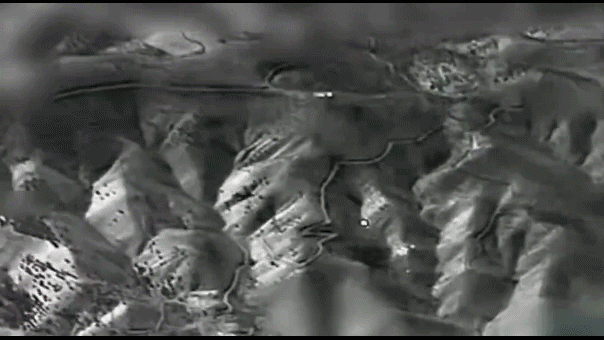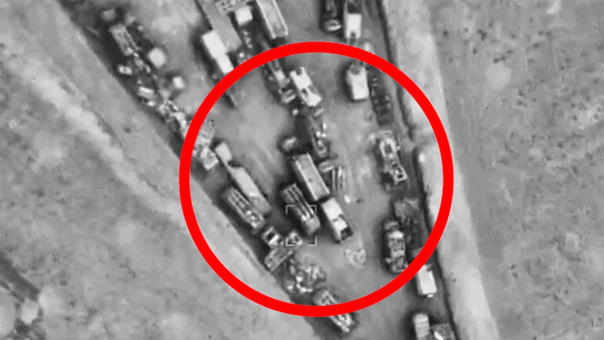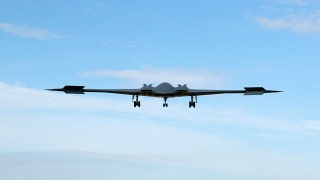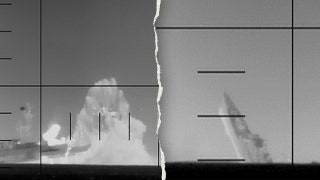Hundreds of pro-Russian demonstrators stormed police headquarters in Odessa on Sunday and won the release of 67 people detained, days after deadly clashes left 42 dead in the Ukrainian port city.
The release came hours after Ukraine’s interim Prime Minister accused Russia and anti-government protesters of orchestrating a “real war” to threaten Ukraine’s sovereignty.
Arseniy Yatsenyuk told the BBC that the Kiev government would allow a "full, comprehensive, and independent investigation" into Friday's clashes in the Black Sea port. The violence began with street fighting between two sides in which at least three people were reported killed by gunfire, then turned into a grisly conflagration when government opponents took refuge in a building that caught fire after pro-Kiev protesters threw firebombs inside.
"I personally blame the security service and law enforcement office for doing nothing to stop this crackdown," Yatsenyuk told the BBC. However, the Prime Minister also said pro-Russian groups were also to blame for "provoking the unrest," and accused Russia and the protesters of orchestrating "real war ... to eliminate Ukraine and eliminate Ukranian independence."
Early Sunday, hundreds of pro-Russian demonstrators gathered in front of the scorched trade union building to honor those who died in Friday's blaze. Some draped a large Russian tricolor flag on the face of the building.
By mid-afternoon, a group of several hundred people marched to the police station to demand the release of fellow activists jailed over their involvement in the unrest. They attacked security surveillance cameras and smashed windows. Shortly after some of them managed to break into an inner courtyard, police yielded to the crowd's demands and released the prisoners.
As detainees emerged from the police station, the crowd cheered.
Ukraine’s Interior Ministry said in a statement that 67 activists had been released. It was not immediately clear whether others were still being held.
Yatsenyuk was visiting Odessa on Sunday. Odessa is the major city between the Crimean peninsula, which Russia annexed in March, and the Moldovan separatist region of Trans-Dniester where Russia has a military peacekeeping contingent. Concerns are mounting that Russia ultimately aims to take control of a huge swath of Ukraine from Trans-Dniester to the east.
Yatsenyuk described Friday’s violence as “not a tragedy only for Odessa," but “a tragedy for all Ukraine."
Yatsenyuk's comments came as his government claimed that troops had made advances against positions held by pro-Russian rebels in the eastern part of Ukraine. Interior Minister Arsen Avakov said in a statement on his Facebook page that a new assault to reclaim control over the town of Kramatorsk by the National Guard and armed forces began at dawn on Sunday. The government also claimed that its forces had reclaimed a television tower in the town.
The city saw a standoff Saturday that culminated in insurgents setting buses alight to ward off attacks. Russian state television has reported 10 deaths, including two among government forces, during clashes in Kramatorsk so far. Those figures could not be independently confirmed.
At least 12 government armored personnel carriers were spotted driving through the town Saturday, although they appeared to have returned to their base at a military airfield on the edge of the city by day's end.
By midday Sunday, however, there was little sign of movement, from either government or insurgents on the ground.
Efforts to counteract the insurgency have focused mostly on the nearby town of Slovyansk; authorities are currently seeking to form a security cordon around that city. A BBC correspondent reported that Ukrainian forces were attempting to gain control of some of the smaller towns near Slovyansk. Residents reportedly expect Ukrainian troops to storm the town.
The blockade has already resulted in a spate of panic-buying in the city with long lines forming outside grocery stores.
Ukrainian authorities have repeatedly claimed victories in capturing checkpoints surrounding the city, although such boasts have often proven overstated.
Government buildings have been seized by pro-Russian forces in more than a dozen or so cities and town across eastern Ukraine.
Andriy Parubiy, secretary of Ukraine's National Security and Defense Council, said an "anti-terrorist operation" will be carried out in towns beyond Slovyansk and Kramatorsk, according to Interfax-Ukraine news agency.
Traffic around the Donetsk region, where the insurgency is strongest, has been impeded by a proliferation barricades manned by men armed variously with sticks, automatic rifles and handguns.
The goals of the insurgency are ostensibly geared toward pushing for broad powers of autonomy. Russia, which the international community has also accused of promoting the unrest, has vociferously condemned recent Ukrainian security operations in the east.
The self-styled Donetsk People's Republic says it plans to hold a referendum on autonomy by May 11, but with less than a week remaining, little visible effort has been to make that vote happen.
Despite the ongoing unrest, Yatsenyyuk said Kiev hadn't "entirely lost the control ... much will depend on the local population, whether they support peace and security.
Elections are scheduled to take place May 25 in Ukraine. Yatsenyuk has led the interim government since former Ukraine President Viktor Yanukovych was ousted.
The Associated Press contributed to this report.








































